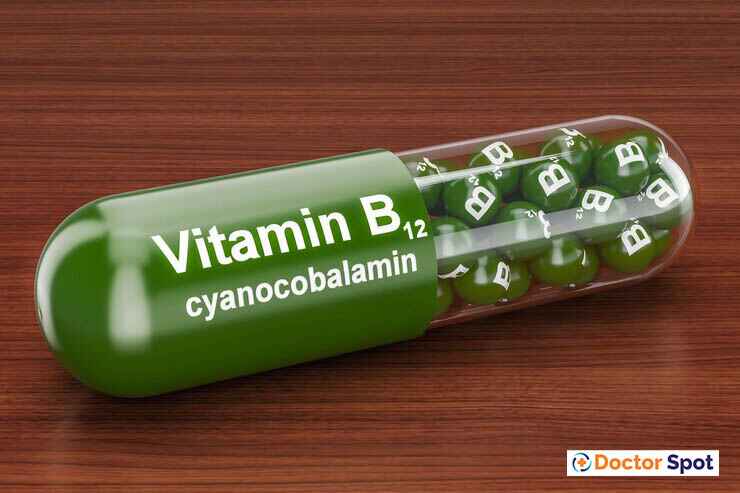Methylcobalamin : Uses, Side Effects, Dosage, Precautions and More

Table of Contents
Methylcobalamin
If you’ve been feeling a little out of sorts lately, lacking energy, or dealing with nerve pain, you may have heard about methylcobalamin. It’s a mouthful, but this vitamin might just be what you need. Today, we’re diving into everything you need to know about this powerhouse vitamin.
What is Methylcobalamin?
Methylcobalamin is a form of Vitamin B12, essential for our body’s ability to create DNA, nerve cells, and red blood cells.
Chemical Structure
Methylcobalamin is one of the four cobalamin compounds, differentiated by its unique methyl group. This structure makes it naturally active in the human body.
Natural Sources
You can find methylcobalamin in animal products like meat, fish, eggs, and dairy. For vegetarians, fortified cereals and nutritional yeast can also be good sources.
Health Benefits of Methylcobalamin
This vitamin is more than just a letter of the alphabet. It packs a punch when it comes to health benefits.
Boosts Energy Levels
Feeling sluggish? Methylcobalamin helps convert carbohydrates into glucose, your body’s fuel, thereby giving you that much-needed energy boost.
Supports Nervous System Health
Methylcobalamin is crucial for maintaining the health of your nervous system. It helps produce myelin, the protective layer around your nerves.
Aids in Red Blood Cell Formation
Methylcobalamin plays a significant role in the production of red blood cells, preventing conditions like anemia.
Enhances Cognitive Function
It’s also involved in brain health, potentially improving memory and cognitive functions.
Uses of Methylcobalamin
This vitamin is used in various treatments and preventive measures.
Treating Vitamin B12 Deficiency
Vitamin B12 deficiency can lead to severe health issues, and methylcobalamin is one of the most effective treatments.
Managing Diabetic Neuropathy
People with diabetes often suffer nerve damage, and methylcobalamin can provide symptomatic relief.
Supporting Heart Health
High levels of homocysteine can lead to heart problems, and methylcobalamin helps regulate these levels.
Maintaining Bone Health
Vitamin B12 is linked to bone density, and methylcobalamin helps in maintaining strong bones.
How Does Methylcobalamin Work?
Understanding the Mechanism
Methylcobalamin works by participating in key biochemical processes, such as DNA synthesis, and the formation of neurotransmitters.
Absorption Process
Unlike some other forms of Vitamin B12, methylcobalamin doesn’t require as much conversion in the liver, making it more efficiently absorbed by the body.
Dosage Recommendations
General Dosage Guidelines
For most adults, a dose ranging from 500 mcg to 1000 mcg daily is common. However, this can vary.
Dosage for Specific Conditions
For treating specific conditions like diabetic neuropathy or severe B12 deficiency, higher doses may be recommended.
Adjustments for Special Populations
Dosage adjustments might be necessary for elderly individuals or those with absorption issues.
Potential Side Effects
Common Side Effects
Most people tolerate methylcobalamin well, but minor side effects can occur, such as mild diarrhea or headaches.
Rare Side Effects
In very rare cases, people might experience allergic reactions, which can manifest as itching, swelling, or difficulty breathing.
What To Do In Case of Severe Reactions
If you experience severe side effects, it’s essential to seek medical attention immediately.
Who Should Avoid Methylcobalamin?
People with Allergies
If you have a known allergy to cobalt or cobalamin, steer clear of this vitamin.
Pregnant and Breastfeeding Women
It’s best to consult a doctor before taking methylcobalamin if you are pregnant or breastfeeding.
Interactions with Medications
Common Drug Interactions
Certain medications like metformin and proton pump inhibitors can interfere with the absorption of methylcobalamin.
Safety Precautions
Always consult your healthcare provider when combining treatments to avoid negative interactions.
How to Take Methylcobalamin
Forms Available (Tablets, Injections, etc.)
You can take methylcobalamin in various forms: orally as tablets or sublingual lozenges, or through injections.
Tips for Effective Use
For optimal absorption, take it on an empty stomach or as directed by your healthcare professional.
Precautions to Keep in Mind
Monitoring Levels
Regular monitoring through blood tests can help keep your vitamin B12 levels in check.
Consulting Healthcare Providers
Always consult your healthcare provider for tailored medical advice suited to your individual needs.
Comparing Methylcobalamin with Other Forms of Vitamin B12
Methylcobalamin vs. Cyanocobalamin
Methylcobalamin is naturally active and more readily absorbed, whereas cyanocobalamin is synthetic and may require conversion.
Methylcobalamin vs. Hydroxocobalamin
Hydroxocobalamin is another injectable form, often used for specific medical conditions, but not as bioavailable as methylcobalamin.
User Experiences and Testimonials
Personal Stories
Many people report increased energy levels and improved nerve function after switching to methylcobalamin.
Reviewing the Evidence
While anecdotal evidence is strong, it’s always supported by numerous scientific studies.
Scientific Research and Studies
Overview of Key Studies
Many studies have shown the benefits of methylcobalamin in treating neuropathy and boosting cognitive functions.
Future Research Directions
Ongoing research aims to uncover more benefits and optimize dosing strategies for specific populations.
Conclusion
Methylcobalamin is a versatile and potent form of Vitamin B12 that offers numerous health benefits. From boosting your energy to supporting your nervous system, it’s a crucial nutrient you don’t want to overlook. However, always consult with your healthcare provider to ensure it’s the right fit for you.
FAQs
1. What is the best time of day to take methylcobalamin?
Morning or as directed by your healthcare provider.
2. Can I overdose on methylcobalamin?
While it’s rare, taking excessively high doses can cause complications.
3. Is methylcobalamin vegan?
Typically, it’s sourced from animal products, but vegan versions are available.
4. What foods are rich in methylcobalamin?
Animal products like meat, fish, dairy, and eggs are rich sources.
5. How long does it take to see the benefits of methylcobalamin?
Some people notice improvements in a few weeks, but it can vary by individual.
Also read: Best Foods That Boost Your Stamina Naturally
Disclaimer:
All information and content on this site are provided for informational and educational purposes only. They are not a substitute for professional medical advice, diagnosis, or treatment. Always seek the guidance of a qualified healthcare professional for any health-related concerns or conditions.